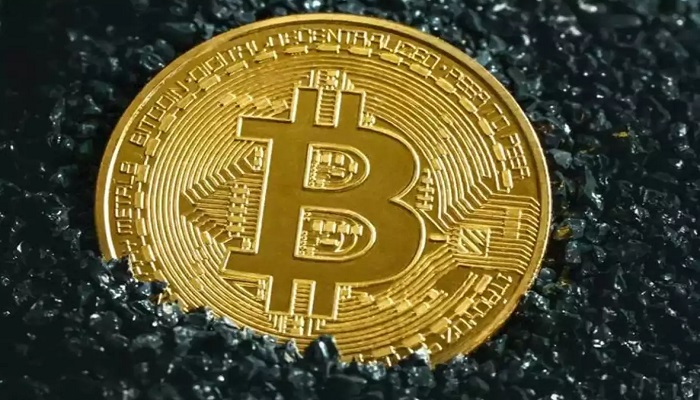This article contains vital information about Bitcoin, the benefits of investing in Bitcoin, the risks involved, the Bitcoin wallet, safety measures, and talks about “what will happen when the owner of Bitcoin dies.”
For some years now, so many people have been talking about Bitcoin. Some made kind comments about it, while others believe that bitcoin should be eliminated.
Everyone opinion depends on their experience and the information they gathered about bitcoin.
Bitcoins have indeed enriched some people; they will be ever grateful. On the other hand, some had gone bankrupt all in the name of bitcoins.
Not everyone has given Bitcoin a chance. Most people out there need to get a good understanding of Bitcoin before deciding on it.
In this article, we will use smooth words to explain how Bitcoin works and every other thing surrounding it.
After reading this post, you will have full knowledge to decide whether or not to invest in Bitcoin.
What is Bitcoin?
Bitcoin is a kind of digital money that can only be in an electronic form. But at the same time, it can be used the same way just like the traditional money in your wallet.
What this means is that Bitcoin is not paper money like the Dollar, Euro, and Pound.
Bitcoin is a part of something called a “Blockchain” and only exists in an encrypted form virtually. It is why it is called a Cryptocurrency.
What differentiates cryptocurrency from traditional currencies?
The significant difference here is that cryptocurrency has no central bank or country that governs it. It’s a decentralized currency.
Decentralized money means that the value, price, and purchasing power of the money, can never be affected by any economic factor or geopolitical effects of the world.
It is one of the greatest advantages and critical drivers of Bitcoin’s popularity. It is what makes Bitcoin very much more stable than other market-linked investment options in the world.
Let us talk more about cryptocurrency in general.
What is Cryptocurrency
A cryptocurrency is a virtual or digital currency specifically designed to function as a medium of exchange.
It makes use of cryptography security to secure and verify all its transactions. And to control the creation of new units of a particular cryptocurrency.
Cryptocurrencies have limited entries in a database that nobody can change unless specific conditions are entirely fulfilled.
There are hundreds of cryptocurrencies existing in the world, and Bitcoin is one of them.
Our focus will be on Bitcoin, which is the leading cryptocurrency.
Towards the end of this post, we will list and explain other high-rated cryptocurrencies.
Take 2 min to watch this short video on cryptocurrency.
What is the Value of Bitcoins?
Bitcoin started at the value, which is as good as nothing. As of March 2010, the price of Bitcoin was at the rate of US$0.003 for 1 Bitcoin.
The price of bitcoin to the United States Dollar has been fluctuating incrementally ever since then.
At a point in December 2017, the value rose to a whopping $17,900 and in February 2018 the exchange dropped to $6,200 for 1 Bitcoin.
Most crypto experts predicted that Bitcoin’s value would continue to rise. Some are of the opinion that the value could hit $100,000 in ten years.
But don’t just base your decision on predictions by these experts, they may be wrong.
Where did Bitcoin come from?
Bitcoin was invented by a person or maybe a group of people using a fictitious name known as “Satoshi Nakamoto.”
Do you know anyone who knows who this person or people are?
Despite many efforts to unmask the person(s), there is still no reliable evidence of who they are.
It does not matter trying to dig out the person or people behind it. Satoshi Nakamoto designed the Bitcoin system in an open-source form.
What this means is the code is available for everyone to see and inspect. There is no secret to it and no influence on it from the developers or programmers.
Over the years the code has been altered/improved for specific reasons to make it more efficient.
Therefore, the code and the entire system have some differences – from the initial outline, Satoshi Nakamoto proposed.
It will be necessary to mention that there is a common misconception that Satoshi Nakamoto invented Bitcoin all by himself or themselves.
Just like many significant breakthroughs in science and technology, the Bitcoin invention was built on the shoulders of great giants.
Over the years, many top-rated scientists, engineers, and mathematicians have been involved in research around the entire cryptography systems.
Satoshi Nakamoto was able to pull all of this work together into one single plan and then start the implementation.
If you have come across Satoshi Nakamoto’s whitepaper, you will notice that he references all the other work on which he relied to complete the invention of Bitcoin.
What are the benefits of bitcoin?
1. Security
Security is the biggest advantage of trading in Bitcoins. It is more safe than using debit or credit cards as well as wire transfers, giving the multiple levels of security built into the purchase, trading, and storage of Bitcoins.
It also increases safety – as cybercriminals will be unable to link transactions to your wallet or access your confidential and private financial details.
2. Total Control and Tax-Free
Currently, no regulations govern Bitcoin and cryptocurrency exchange in general.
As long as you cannot trace the transactions to a particular group, individual, party or government, access to the information on whether someone owns Bitcoin or not is not available.
What this means is that you won’t be taxed for any gain by any government. No government of a nation will ever tax you or seize your asset.
Therefore, you have 100% control over the things you do with your cryptocurrency.
3. Low-Cost Fees
Cryptocurrency transaction fees are meager. It is almost free when compared with the traditional methods of payment, such as Wire transfer, Online Banking, Debit card, and Credit card.
What’s most fabulous about Bitcoin is that your transfer fee will only be paid once, and it is not based on the percentage of the money you are transferring.
It does not matter if you are transferring to Bitcoin in the world; you only need to pay a fee for one transaction.
4. Easy Portfolio Diversification
The only thing that affects the bitcoin price is the law of demand and supply.
It makes the digital currency a perfect way to quickly diversify your portfolio and hedge against any economic volatility or geopolitical pressures, which are often too familiar nowadays.
One of the biggest advantages here is the anonymity of Bitcoin; this means that it can’t be traced back to the user.
What is a Bitcoin Wallet?
Lots of people are already familiar with digital wallets. A Bitcoin wallet is not very different from a digital wallet. A Bitcoin wallet is software that allows for the storing of Bitcoin electronically.
Having this, you get a private key, which is your confidential number. The key is just like your ATM card PIN. Without your ATM card PIN, you can’t access the card, the same applies to the Bitcoin wallet PIN.
With the help of the Bitcoin wallet, you can send and receive cryptocurrency, as well as check your cryptocurrency account balance.
The Bitcoin wallet can be on the internet (online), installed on your phone or your PC.
You need a wallet before you invest or trade in Bitcoin.
Different Types of Bitcoin Wallets?
1. Web Wallet
The web wallet allows you to store, send, and receive digital currency through web browsers, such as Google Chrome, Mozilla Firefox, Internet Explorer, etc.
This type of wallet is usually hosted by a service provider, who will be very much responsible for managing and ensuring its security.
The web wallet is probably the most convenient form of a portfolio, especially for those new to cryptocurrency.
2. Desktop Wallets
The second type of wallet is the desktop wallet. It allows you to install the wallet on your computer.
One good thing about this type of wallet is that it gives you total control of the wallet, but the security of the wallet falls on you as well.
On this type of wallet, your private key will need to be stored on your hard drive.
The problem here is that – if in any case or somehow the file gets corrupted, and you don’t have any backup, you may end up losing all your digital currency.
If you prefer the desktop wallet, then you must make sure that you have a strong password and a good backup.
3. Mobile Wallets
The mobile wallet is just like the desktop wallet. But in this case, it will be installed on your smartphone.
With this option, you can access your wallet at any point in time with your smartphone. It creates room for accessibility on the go.
While it is straightforward to use, scanning the QR codes is more comfortable as well.
4. Hardware Wallets
A hardware wallet is a type of electronic device that is designed for the specific purpose of storing Bitcoins.
The main benefit is that it is far safer from malicious attacks.
Choosing the Right Bitcoin Platform
Choosing the right Bitcoin platform is one of the first and crucial decisions to make while buying and selling Bitcoin.
- Registration Country: The laws that govern Bitcoin exchange would depend on your location. The regulations will vary from one country to another. It is best for you to choose a platform based on your home country.
- Modes of Payment: Check to know if the platform allows your preferred mode of payment, such as; Wire Transfer, Internet Banking, Credit Card, Cash, etc.
- Fees: Compare and contrast the prices on different platforms, also find out if there are any other hidden charges.
- Order Book Volume: This is a list of buying and selling orders on a platform. If the volume is high, it means high liquidity, meaning that lots of people are making use of the exchange to buy and sell Bitcoin. The effect of this is that you can easily find a buyer when you want to buy or sell at a particular price point.
- Transparency: Try to find out whether the exchange mentions all its fees and other charges and if it publishes its audit information.
- Speed of Deposits: It is about how quickly your wallet will get credited or debited with Bitcoin after performing a transaction. And how fast your bank account gets credited when you sell the digital money to them.
- Security: Is best if the exchange uses secure logins or two-factor authentication. Before you finalize any exchange or transfer funds, do ensure you check the prints. Read the terms and conditions and their privacy policy, and ask questions.
If this article was helpful to you, then appreciate us by sharing it with someone.
RELATED ARTICLES


